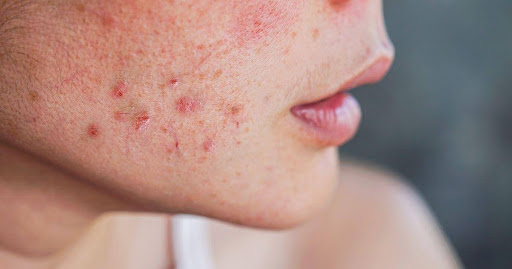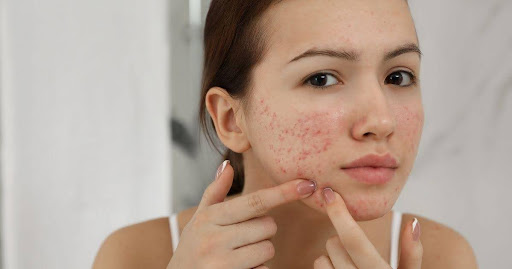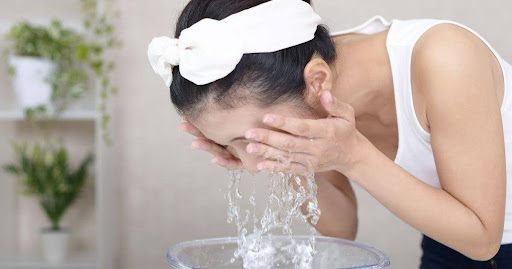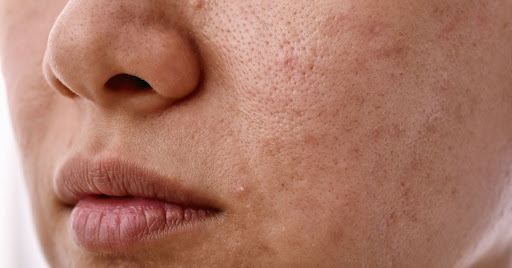How to Get Rid of Pimples: Causes and Treatments
8 min read
By DocGenie , Published on - 13 October 2024
Pimples, sometimes appearing overnight, are a significant frustration and for many, a confidence-lowering skin problem. Pimples range from almost invisible tiny bumps to the large painful cysts. Pimples are surely not a condition one finds nice, whether it’s for a teenage person due to hormonal imbalances or an adult suffering stress-related breakouts. It can take away from your self-confidence.
But don't worry you are not alone; millions of people worldwide have to deal with pimples, and there is a way of effectively handling and treating them. Knowing what causes pimples and doing the right skincare can give you brighter, healthier skin.
Who Can Get Pimples?
Although most people get pimples in the teenage years and in early adulthood due to hormone-induced changes, it does affect anyone at any age. A very important fact that should be remembered is that anyone can develop pimples, such as:- Teenagers and Young Adults: This is a most common age group to experience pimples because hormonal changes within the pubertal years result in increased oil production, causing pores to become blocked.
- Adults: Pimples are still a common condition that occurs well into the 30s, 40s, and even beyond. Adult onset can be caused by fluctuations in hormones, stress, or a variety of medications.
- Babies and Children: Infants and children get pimples too, mainly through hormonal causes.
What are the Types of Pimples?

- Whiteheads:
- Closed comedones
- Small, flesh-coloured bumps
- Filled pores, containing sebum and dead skin cells
- Blackheads:
- Open comedones
- Small, dark bumps
- Exposure of pores to air which results in oxidation and turning black
- Papules:
- Small, red, tender bumps
- Inflammatory lesions caused by bacteria
- Pustules
- Pus-filled pimples
- Red, inflamed bumps with a white or yellow centre
- Nodules:
- Large, solid, and painful bumps
- Deep, inflamed lesions that can take weeks to heal
- Cysts:
- Large, painful, pus-filled bumps
- Deep, inflamed lesions that can cause scarring
Why do Pimples Occur on the Face?

Understanding the Causes of Pimples
Before we outline any treatments, let's learn more about what's behind the causes of pimples.- Puberty: When you reach your early teens, hormonal balances begin to shift, and for many, the increases of androgen hormones bring more oil production in their sebaceous glands. Sebum is the oily substance released to help protect the skin but is likely to clog up your pores, causing the production of comedones like blackheads and whiteheads.
- Menstruation: Some people seem to break out due to the hormonal variation that occurs during menstruation.
- Pregnancy and Menopause: Hormonal shifts during these life stages can affect sebum production and contribute to pimples.
- Propionibacterium acnes: This is bacteria that thrives in an oily environment that leads to inflammation and infections within pores.
- Staphylococcus epidermidis: Another bacterium that can contribute to pimples, especially in severe cases.
- The dead skin cells may clog pores, therefore giving a breeding ground for bacteria. This will lead to comedones and other forms of pimples.
- Genetic factors may also influence an individual's susceptibility to pimples. If your parents or siblings have a history of acne, you are likely to experience it too.
- Diet with high processed foods and sweet drinks can cause pimples.
- Stress causes more pimples due to the rise in hormone levels and inflammation.
- Pimples can be caused as a side effect of certain medications, such as corticosteroids and lithium
Hormonal Shifts:
Bacteria:
Dead Skin Cells:
Genetics:
Other Factors:
Diet:
Stress:
Certain Medications:
How to Get Rid of Pimples?
Having understood the causes, let's discuss treatments that will help you get rid of those pesky pimples:Over-the-Counter Treatments:
- Benzoyl Peroxide: It is used to kill bacteria and prevent inflammation. It's available in various strengths, so start with a lower concentration and increase if needed.
- Salicylic Acid: This is a beta-hydroxy acid exfoliant, removing dead skin cells, allowing blackheads to expel their impurities. Make sure your product contains a concentration of 2% or more.
- Sulphur: Helps in drying excess oil, decreasing inflammation.
- Tea Tree Oil: This is an antibacterial compound that can combat the bacterium responsible for pimples. It must be mixed with a carrier oil to be used on the skin.
Prescription Treatments:
Over-the-counter treatments are sometimes not enough. Your doctor may prescribe stronger medications such as:- Topical Retinoids: These are derivatives of vitamin A. They help regulate cell turnover, reduce inflammation, and prevent pores from clogging.
- Oral Antibiotics: In severe cases, oral antibiotics are needed to kill the bacteria while at the same time reducing inflammation.
- Hormonal Therapies: For women with hormonal acne, they can be treated by using birth control pills or other types of hormonal treatment.
Lifestyle Changes:
While doing topical treatments, some lifestyle changes can also help improve your skin.- Gentle Cleansing: You should wash your face at least twice in a day with a mild fragrance-free cleanser. Be sure to avoid harsh scrubbing on your skin since it might irritate your skin.
- Moisturising: You can moisturise your skin even when it is oily. Use only a non-comedogenic moisturiser so that it won't clog pores.
- Avoid Touching Your Face: As your hands contain germs, you should try to not touch your face at all times during the day.
- Healthy Diet: Healthy diet with fruits, vegetables, and whole grains help the general well-being of your skin.
- Manage Stress: Stress causes more acne so it's a good idea to look for healthy ways to manage stress, including meditation and yoga.
Also Read: How Yoga Practice Can Help You Deal with Anxiety
Home Remedies to Remove Pimples
Here are some home remedies for pimpletreatment:- Tea Tree Oil: The oil is filled with antibacterial and anti-inflammatory properties that reduce the severity of pimples. It needs to be diluted with a carrier oil such as coconut oil before applied to the affected area.
- Aloe Vera: The soothing gel from the aloe vera plant can also help reduce redness and inflammation caused by the pimples. Fresh gel from the aloe vera plant can be applied straight to the affected area.
- Apple Cider Vinegar: Apple cider vinegar works as a natural astringent, killing bacteria as well as reducing excess oils in the skin. One needs to dilute this with water before applying on the skin.
- Honey: Honey has antibacterial properties that combat the bacteria causing pimples. Apply raw honey on the pimple and keep it for 15-20 minutes before washing.
- Green Tea: Green tea has antioxidants that help reduce inflammation of the skin and soothe the skin. Apply cooled green tea bags on the area or drink green tea every day.
How to Prevent Pimples

When to Seek Professional Help
If your pimples are aggressive, chronic, or painful, you may need the help of a professional dermatologist. A dermatologist would be able to determine what is causing your pimples -the hormonal fluctuations, infection caused by bacteria, or anything else-and recommend a customised treatment plan according to that patient's individual needs. This could be topical treatments, oral drugs, or lifestyle changes.You can get the advice of a dermatologist, who would provide you with proper treatment and advice to make your skin clearer and healthier and give you more confidence. You can see a doctor from home using DocGenie.
By consulting with a dermatologist, you can receive expert advice and effective treatment to help you achieve clearer, healthier skin and boost your confidence. You can easily see a doctor from home using DocGenie.
DocGenie makes it simple and easy to talk to a doctor about how to get rid of pimples. Our dermatologists at DocGenie are dedicated to providing kind and effective care. With a video call, you can connect with a doctor without leaving your home. DocGenie lets you get quality healthcare from anywhere, in a cost-effective way.
Additional Tips for Managing Pimples
- Don't Pick at Your Pimples: They can scar and become infected.
- Use Non-Comedogenic Products: Choose makeup, sunscreen, and other skincare products labeled "non-comedogenic," meaning they are less likely to clog pores.
- Be Patient: Acne treatments take time; don't get discouraged and quit if your skin doesn't clear up right away.



